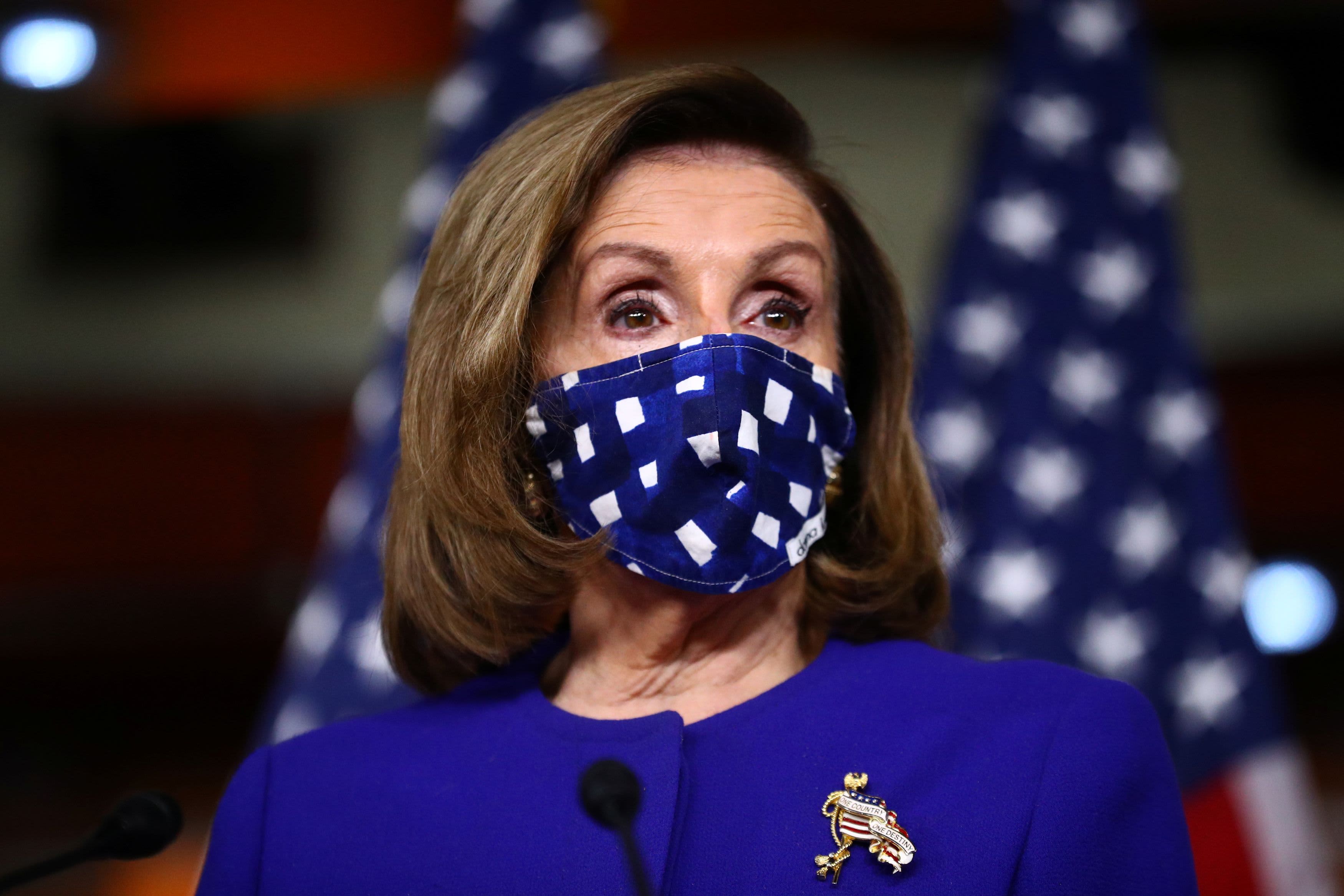While Democrats and the White House are close to reaching a coronavirus stimulus deal, it could take a lot longer to write and vote on a bill, House Speaker Nancy Pelosi said Thursday.
The California Democrat plans to speak to Treasury Secretary Steven Mnuchin again Thursday as they try to craft an aid agreement. While the speaker said the sides are “just about there” on reaching a deal, she cautioned that passing it into law will take time as she and the Trump administration try to iron out remaining issues.
“If we can resolve some of these things in the next few days, it’ll take a while to write the bill,” Pelosi told reporters at the Capitol.
The House speaker said the sides still have not come to a consensus on several topics that have flummoxed negotiators during months of on-again, off-again talks. Those include aid to state and local governments, liability protections for businesses, and funding for the U.S. Census and election systems.
The failure to reach an accord by now has made it all but impossible for lawmakers to inject money into the fight against Covid-19 or boost a sluggish economy before the Nov. 3 election. However, Pelosi said she believes “both sides want to reach an agreement” during what she called a “serious attempt” to provide aid.
“We can do something great, and I’m still optimistic that we can do that,” she said.
U.S. House Speaker Nancy Pelosi speaks about the need for additional coronavirus relief during her weekly news conference with Capitol Hill reporters in Washington, U.S., October 22, 2020.
Hannah McKay | Reuters
The effort to pass more stimulus is filled with pitfalls as Democrats and the White House discuss legislation that would cost roughly $2 trillion. Most Senate Republicans oppose another massive spending program, and it is unclear what kind of package could garner enough votes to get through the GOP-held chamber.
Some Republican senators such as Marco Rubio of Florida have signaled they could support a bill with a hefty price tag as they worry that inaction would leave prolonged economic damage.
President Donald Trump‘s varying stances on a relief bill have also complicated the process. Pelosi said the president has “been all over the map,” after he first called off talks and then claimed he wants to spend more than even the $2.2 trillion Democrats have proposed.
During the slog to reach a relief agreement, Democrats and Republicans have increasingly described their differences as fundamental disagreements over what role the government needs to take to help the country emerge from the economic and health-care crises.
Congress’ ability to pass legislation during the so-called lame-duck period after the election could depend on who wins pivotal races for the White House and congressional seats. If the presidency or Senate control change hands, the shift would not take effect until January.
Federal Reserve Chair Jerome Powell and many economists have warned of potentially devastating economic consequences if Congress fails to pass more stimulus. Economic pain has sharpened for many Americans after the expiration of the $600 per week supplemental federal unemployment benefit during the summer.
The U.S. got some good economic news Thursday, when the Labor Department reported initial jobless claims fell last week to their lowest level since March.
